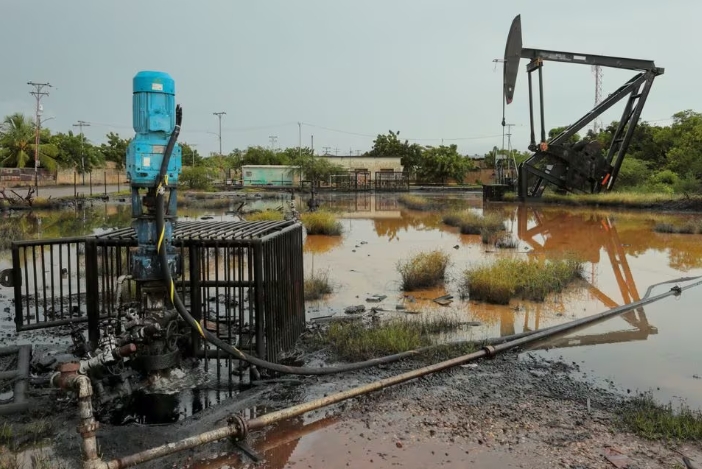
The increase shows the impact of sanctions relaxation on the country's oil exports, and the degree to which further gains could remain limited by the need for stable policies and capital to rebuild Venezuela's crude production, which rose at a slower rate than exports last year.
Washington in late 2022 began green lighting foreign oil firms' swaps of Venezuelan oil for debt and unpaid dividends. In October, the U.S. further eased the South American country's exports of crude and gas to its chosen markets with a 6-month license intended to encourage a free presidential election this year.
The sanctions relaxation allowed state oil company PDVSA last year to increase its exports of crude and fuel. Global trading houses that had been barred from dealings emerged as early buyers of cargoes, and provided product imports to meet domestic fuel demand.
The moves reopened the U.S. market for Venezuela's crude after a four-year pause, and allowed a resumption of oil exports to India, which before U.S. sanctions was among the three top destinations for Venezuelan oil.
China, which never suspended imports of Venezuelan crude amid U.S. sanctions, last year remained the largest destination for Venezuela's oil, taking about 65% of the country's average exports of 695,192 barrels per day (bpd), according to LSEG vessel monitoring data and PDVSA documents.
The U.S. received 19% of shipment volumes or about 135,000 bpd, while countries in Europe took 4% and Cuba imported 8%. Nations including Brazil, Colombia and Panama also received cargoes last year, the data showed.
Higher exports also was boosted by more stable oil production during the year and a spurt in December shipments. A total of 46 cargoes departed Venezuelan ports carrying 798,000 bpd of crude and fuel, and 376,000 metric tons of oil byproducts and petrochemicals in the year's final month.
Venezuela's crude output averaged 794,000 bpd through November, an increase from the 716,000 bpd of 2022 and the 636,000 bpd of 2021, according to figures reported to OPEC.
The country aims at surpassing 1 million bpd in the coming months, a goal analysts have said would only be feasible if the U.S. license that is set to expire in April is renewed. PDVSA previously had set a production goal of 1.17 million bpd in 2023.
Venezuela imported 59,595 bpd of condensate and fuel mainly from Iran and the United States in 2023 through oil swaps by PDVSA and business partners. The average was below the 78,170 bpd received in 2022 as PDVSA's refineries were able to restart key units to produce motor fuels, reducing the need for imports last year.